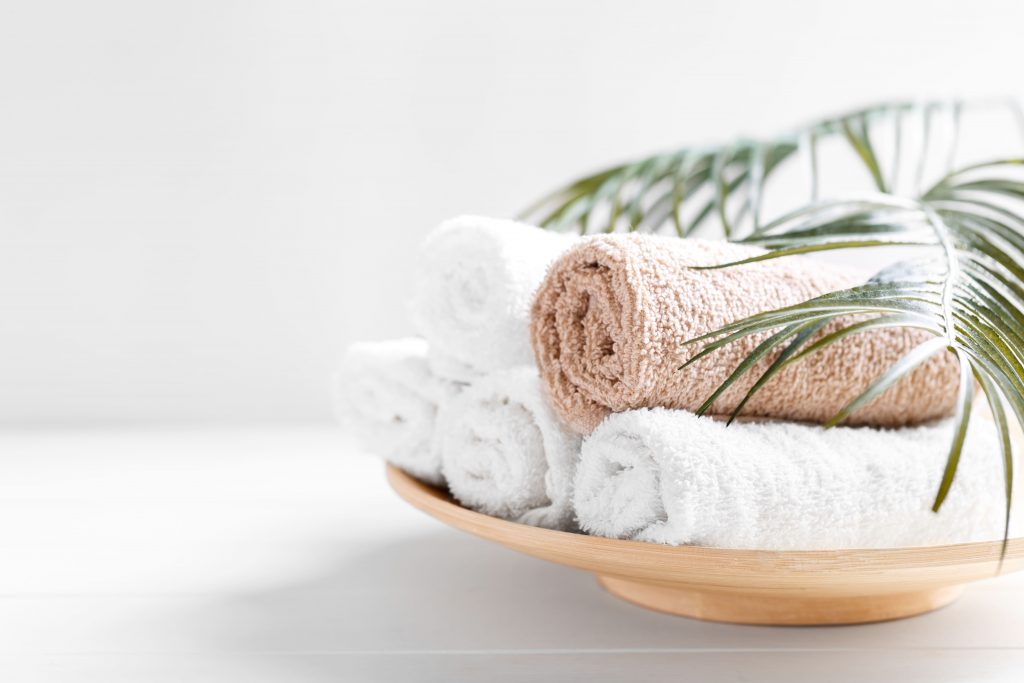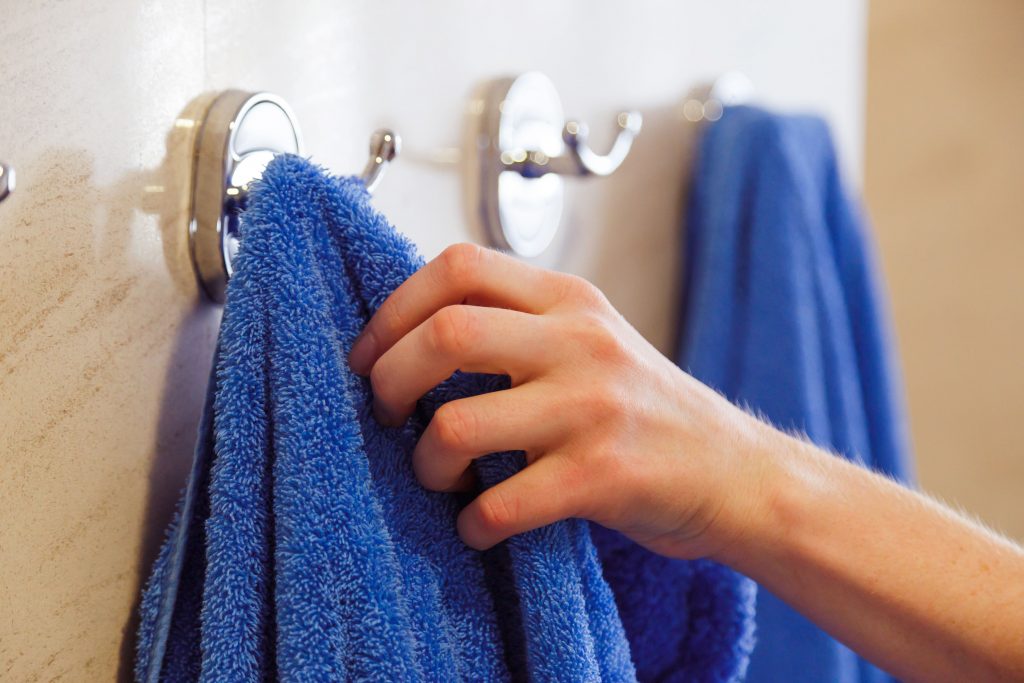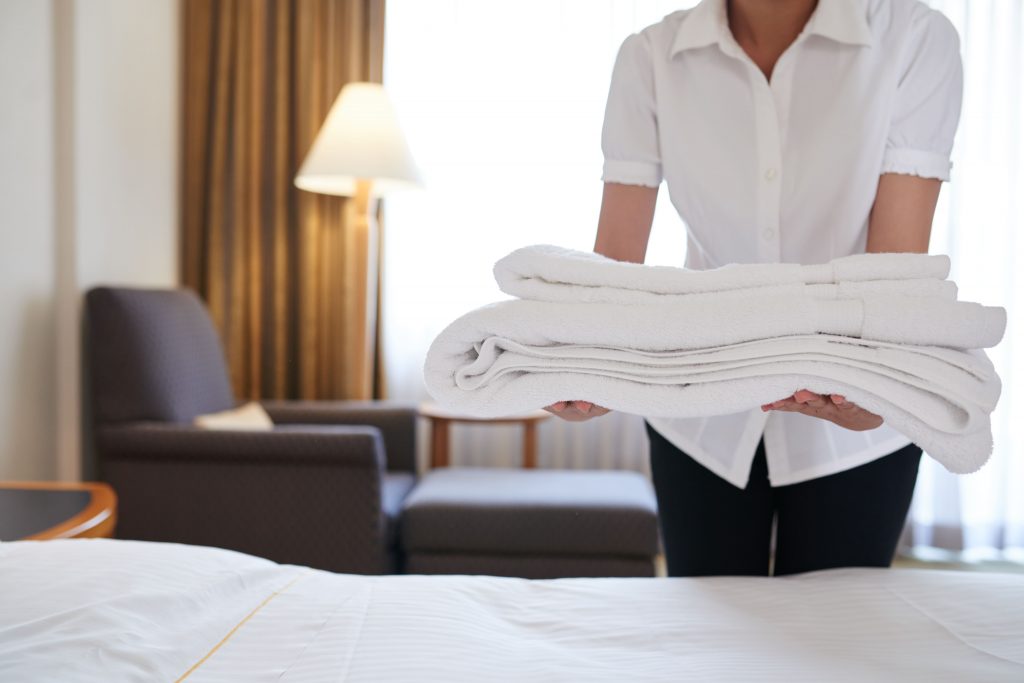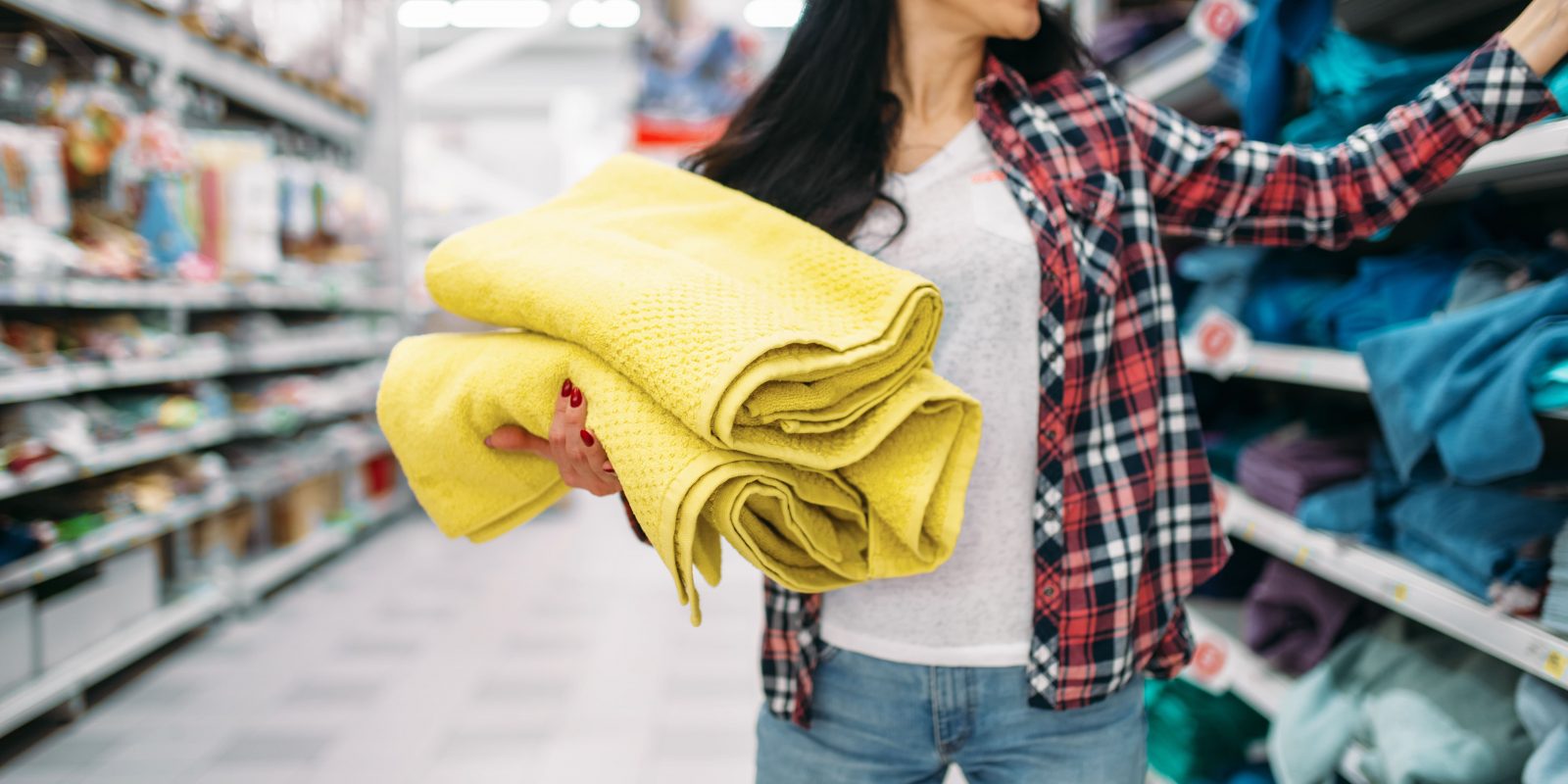Ever wondered what constitutes a quality towel? And when was the last time you even thought about replacing yours? Perhaps it’s high time you got some new, fluffy, and extra smooth towels to nourish your body with after a shower or a bath. Here’s everything you need to know…

How do I choose a towel?
So, how do you go about choosing a towel? It’s not as simple as picking a nice colour to match your bathroom’s décor. If you want quality towels, there are a few things you need to consider before buying:
- Intended use: It might sound daft, but you’d be surprised by just how many different types of towels there are. Just a name a few, there are bath towels, kitchen towels, tea towels, hand towels, face towels, beach towels, and on and on it goes! However, in order to keep this simple, let’s assume that you are looking for a quality bath towel that you can use to try your body once you get out of the shower/bath.
- Absorbency: The thicker and heavier the towel, generally speaking, the more absorbent it will be. On the other hand, thinner and lightweight towels will dry much faster. Towels that are made from Egyptian cotton or Pima, have the highest absorbency and are favoured by many people. These make ideal bath towels. As for a beach towel, you’ll want something thin and lightweight that can dry off in the sun easily.
- Softness: Softness is essential when choosing a decent bath towel. After all, you don’t want to dry your nether regions with a rough sandpaper-like towel, do you? In order to get a soft towel, one that retains its softness after several washes, you should opt for rayon (derived from bamboo), which is exceptionally soft. Pima and Egyptian cotton are also renowned for their softness as well. But, it’s not just in the quality of the towel, but the way in which you wash and maintain them as well.
- Durability: A durable towel is also recommended. Two-ply towels, as you can imagine are more durable than single-ply towels. You will also find that cotton is stronger than rayon; so, whilst rayon may be softer, if you want the perfect balance of softness and durability, then Egyptian cotton is the way to go.
- Brand: Reputable brands tend to produce high-quality products. When buying towels, if you really want the premium quality stuff, then head to the reputable brands that have a proven track record of delivering exceptional towels that are built to last.

What is a good quality towel?
So, what is a good quality towel? For the top quality towels, you’ll want to choose either rayon (from bamboo), Egyptian or Pima cotton, or even Turkish cotton.
Our personal favourite is Egyptian cotton.
How often should you replace towels?
So, how often should you go about replacing your towels? To be honest, there isn’t a set rule here. That said, in order to maintain that soft and fluffy feeling that you get when you use a brand-new towel as you step out of the shower, then you will want to invest in new towels as soon as they lose their absorbency. The experts say that this occurs about every two years, depending on the initial quality of the towel (some low-quality towels lose their absorbency far sooner).
Understandably, when it comes to parting with your money, bath towels tend not to make it to the priority list. In any case, if you have had your current bath towels for more than a few years, then they should be a priority to replace.
When towels become too old, they are no longer effective. You aren’t drying as quickly or as thoroughly as you might expect, and they even become home to bacteria and unseen germs that can cause you more harm than good.
But, how do you know when it’s time to replace your towels without following a loose timeline from a random blog?
Here are some tell-tale signs it’s time for some fancy new bath towels to rival a Thai Hotel Towel:
- You have to rub a towel across your body a number of times before properly removing any water: After use, towel fibers can break down rapidly. Once they stop absorbing water as they are supposed to, then it’s time to swap them for a fresh set!
- The towel smells after one or two uses, even after it has been freshly washed: In this instance, it is a clear sign that there are bacteria within the towel fibres that aren’t getting cleaned away properly. See ya later!
- Holes, tears, and frayed edges are forming: Let’s be honest, if you’ve got holes in your towels and the edges are fraying then it’s time to get some replacements. You deserve better!

Save time and feel good while you’re at it
The fact is, replacing towels isn’t something that most people think about until they begin falling apart. After all, unless you’ve been educated on the matter, we don’t know that bacteria start breeding rapidly on old towels with frayed fibres. Not only that, but over time, we get used to having towels that don’t function as well as they should. Taking longer to dry our bodies just becomes the ‘done thing’.
But, don’t you love the feeling when you go to a hotel and dry off in seconds with a soft and luxurious towel? Well, the point is that you don’t need to reserve those experiences just for when you are on holiday!
In fact, with a simple investment, you can buy some gorgeous, new hotel-quality towels and start saving time in the bathroom (and feeling good while you’re at it)!
Conclusion
So, in order to get a good towel, you should look for: absorbency, thickness, softness, and durability. Egyptian cotton is a premium quality choice. And, when it comes to replacing them, you should do so every two years at the very least.




